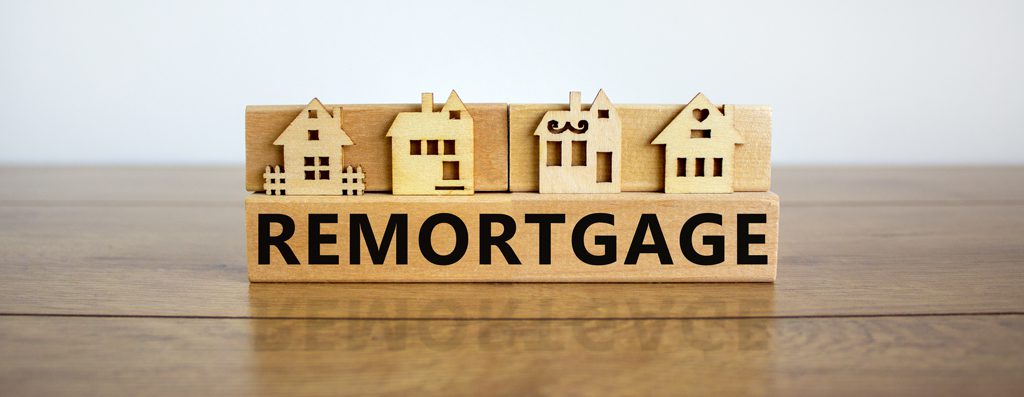Remortgage Conveyancing
Home » How To Get A Mortgage » How to Remortgage » Remortgage Conveyancing
What is a Conveyancer and Why Do You Need One to Remortgage?
A conveyancer, also known as a conveyancing solicitor, specialises in property transfer. This goes for any kind of property, including the intricacies of the remortgage process. When you’re changing your mortgage terms or switching mortgage lenders, these legal professionals are essential, and that’s because the process can get complicated. Not only does it involve complex legal documentation, but also a series of procedures that need to be followed.
Here’s why you should consider enlisting a conveyancer when remortgaging:
Legal Expertise: They know everything there is to know about the law as it pertains to remortgaging. This means they’ll make sure every single step aligns with current regulations.
Fraud Prevention: Identity verification will be done, one way or another. This ties directly into preventing fraud (which is a big deal in all aspects of life). To say this process verifies your identity would be an understatement—it also ensures your transaction remains valid through all stages.
Document Handling: Trust me when I say many documents are involved in remortgaging. A conveyancer will review them extensively so that nothing slips through the cracks. The last thing anyone wants is something legally binding being overlooked on accident.
Seamless Coordination: There will be parties involved during this time that you may not expect to work with again after it’s over. A conveyancer helps communicate between everyone so things move along as quickly and smoothly as possible.
Peace of Mind: Having someone knowledgeable watch over your shoulder takes a load off anyone’s plate—especially if their expertise has anything to do with legality. You won’t have to worry about where things stand or how far away from completion you are anymore—they’ve got it sorted!
I hope this rundown gives homeowners like yourself an understanding and appreciation for conveyancing solicitors. Thanks to their involvement, you can know that your new mortgage terms are legal and will be executed properly.
Do you need conveyancing when remortgaging?
Conveyancing is generally required when changing your mortgage provider. It’s because you need to do legal work to transfer the mortgage deed to the new terms of the mortgage lender. This ensures that the new mortgage contract is valid and properly registered. However, if you only want to change the rate or terms of your deal with your existing mortgage lender- also called product transfer- then you may not need the extensive legal work that usually comes with conveyancing. In this case, some lenders could handle the necessary adjustments internally without a conveyancer
Do I Need a Solicitor to Remortgage with the Same Mortgage Lender?
Remortgaging comes in different shapes and sizes, so to speak. It depends on whether you’re moving to a new mortgage lender or staying with your current mortgage lender. In the latter case—sometimes called a product transfer—you usually don’t need the full conveyancing services from your remortgage solicitors. The process is much simpler because it doesn’t involve transferring your mortgage from one lender to another.
Here are two situations where you might still need a solicitor’s help, even if you’re sticking with your existing lender:
- Adding or Removing Someone from the Mortgage: Legally, any changes to who’s responsible for the mortgage can be tricky. If you want to add a partner or take an ex off the agreement, a solicitor will smooth out the conveyancing process and make sure everything goes according to plan.
- Significant Changes to Mortgage Terms: This isn’t too common, but sometimes people change their home loans dramatically, switching from an interest-only mortgage to a repayment one. When this happens, legal advice and documentation may be necessary.
If you’re still uncertain whether all of this requires help from a remortgage solicitor, read our article “Do You Need a Solicitor to Remortgage?“
Why Consider Legal Advice?
Seeking legal advice, even for simple product transfers, is worthwhile. A solicitor can provide helpful information about the terms of your remortgage and keep your interests in mind.
A comprehensive guide provides a more detailed look at when a solicitor might be needed for remortgaging and what services they offer.
The Remortgage Conveyancing Process
A remortgage conveyancer is crucial in ensuring your mortgage is transitioned legally without any issues. This specialist combines their legal expertise and great attention to every little detail with a proactive nature to ensure the process of switching mortgages is as simple as possible. Here’s how they do it:
1. Your Existing Mortgage
Checking exit fees and early repayment charges: Before getting you a new mortgage, your conveyancer thoroughly checks your current one to identify any financial complications from leaving early. They also look deep into your redemption statement to make sure nothing gets overlooked.
2. ID Verification
Preventing fraud: They have you go through multiple identification checks so that they can protect against identity theft and fraud. Confirming your identity is crucial and will also maintain the integrity of the process. Your conveyancer will verify the identity of each person named on the mortgage and property deeds.
3. Mortgage Security
Taking care of property valuation logistics: In order for anything to run smoothly you need accurate information, especially in something like this where money is involved. So, your conveyancer arranges for a professional valuation on your home that ensures the offer reflects its true value.
4. Thoroughly checking New Agreement
Understandable explanations of Mutual obligations: The last thing anyone wants when going through something this important is feeling lost or confused by all the legal jargon in all the documents you must sign or agree with. Your conveyancer takes an in-depth look at everything and picks out what they feel could be all around confusing for anyone who isn’t familiar with law terms or agreements, then puts them into more straightforward, easier words to understand, empowering you to make informed decisions confidently
5. Execution and Completion
- Final Legal Checks and Mortgage Deed Signing: Before completion, the conveyancer performs essential legal checks, such as a bankruptcy search, to ensure no financial encumbrances could impact the process. Upon confirming all is in order, you’ll sign the new mortgage deed.
- Completion and Financial Transactions: The conveyancer then manages the critical stage of receiving a mortgage advance from the new lender, paying off your previous mortgage, and handling any residual financial matters. This seamless management ensures a smooth transition between mortgages.
6. Registration with the Land Registry
Legal Title Update: After dropping your previous mortgage, the conveyancer doesn’t just stop with placing your new mortgage on record with the Land Registry. This final step not only legally confirms your change in mortgage arrangements but also updates the ownership records accordingly. Importantly, during this process, your conveyancer will obtain title registration documents. These are crucial as they serve as official proof of your updated mortgage details and to show you are the legal owner, ensuring that all legal and administrative aspects of your remortgage are conclusively addressed and documented.
Legal Fees: How much does remortgage conveyancing cost?
The price of a remortgage solicitor fees may vary but here’s what you should expect to pay for legal costs:
- Legal fees—£720 (VAT included): This covers the solicitors’ work and ensures that all of your papers are submitted correctly, making the remortgaging process more efficient.
- Local Search fees – £290
- Electronic bank transfer fee – £40
- Electronic ID check – £20
- Title deeds copy – £4
- Land Registry fees – £4
It’s important to note that this guide is just an estimate; your actual cost may differ depending on the complexity of your remortgage, the rates your solicitor charges, and other factors. It’s always best to get a quote from the solicitor before proceeding with their services.
Remortgage Conveyancing FAQs
How Long Does Conveyancing Take After a Remortgage Offer?
The remortgage conveyancing process typically takes about 3-4 weeks from receiving the mortgage offer, and the mortgagor (borrower) forms are completed. This timeframe can vary based on the remortgage’s specifics and the parties’ efficiency.
Do You Pay Solicitor Fees to Remortgage?
Yes, solicitor fees are usually required when remortgaging. These fees can vary depending on the complexity of your remortgage and the solicitor you choose, but on average, they range from £300 to £1,000.
Are Searches Required for Remortgage?
Searches are not always necessary for a remortgage. The search requirement depends on the new lender’s policies—some may require them, while others may accept search indemnity insurance instead.
Our customer reviews speak for themselves


Remortgage Conveyancing Quotes
Having completed thousands of successful remortgages over the years, we’ve formed close relationships with leading conveyancing firms across England and Wales, giving us access to competitive conveyancing rates. Not only will we source a competitively-priced conveyancing quote, but we’ll also take care of your entire remortgaging process from start to finish. The best part? Our service is 100% FREE.
Call us on 033 0088 4407 or fill in the form below for a no-obligation remortgage conveyancing quote today.
"*" indicates required fields



